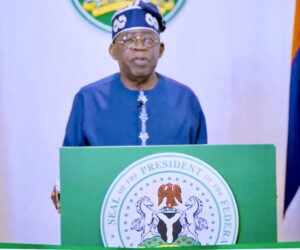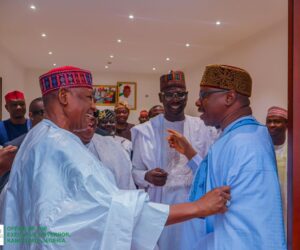Prologue: The promise that turned to pain
Once upon a time, the “African Dream” shimmered with boundless promise — a vision of self-determination, prosperity, and unity rising from the embers of colonial domination. From Accra to Algiers, from Lagos to Lusaka, the rhythm of independence echoed with hope. The world expected a renaissance; Africa was ready to write its own story.
Yet decades later, the dream feels fractured. The drumbeats of progress have been muffled by cycles of poor governance, corruption, brain drain, insecurity, and a leadership vacuum that has left the continent’s immense potential largely untapped. Instead of being the continent of the future, Africa remains the continent of perpetual potential. The dream, once radiant, now flickers in the storm of inequality, disunity, and misdirected priorities.
But make no mistake — a broken dream is not a dead dream. The African Dream can be rebuilt. It requires courage, clarity, character, and collective will.
1. The anatomy of a broken dream
The African Dream broke not in one moment, but in many minor, systemic fractures:
• Broken leadership ethic: Many African leaders have substituted self-serving politics for servant leadership. The public office became an avenue for privilege rather than a platform for stewardship.
• Broken institutions: Where the rule of law should have stood tall, impunity reigned. Institutions meant to protect citizens became instruments of oppression or corruption.
• Broken education systems: Our schools taught survival, not significance. Creativity was stifled; critical thinking was punished. The African child, brilliant and adaptive, was taught to imitate, not innovate.
• Broken economic structures: We export raw materials and import finished goods, exporting jobs and importing poverty. The result? A cycle of dependency and debt.
• Broken unity: The Pan-African vision of Nkrumah, Lumumba, and Nyerere dissolved into fragmented national interests, border conflicts, and ethnic mistrust.
Each fracture widened the gap between Africa’s potential and her performance.
2. The price of a broken dream
When a dream breaks, people lose faith in the possibility of transformation. We see it in the eyes of our youth — restless, brilliant, yet disillusioned. They migrate not because they hate their continent, but because their hope has been betrayed. “Japa” becomes the anthem of escape from systems that suffocate potential.
We also see this in the loss of dignity, as evidenced by the erosion of trust in public institutions, the normalisation of mediocrity, and the celebration of survival over excellence. The greatest tragedy of a broken dream is not poverty but accepting it as the norm.
3. The blueprint for rebuilding the dream
The African Dream can be fixed — not by imitation, but by innovation rooted in identity. It requires a renaissance in five critical domains:
a. Leadership with integrity and vision
Africa needs transformational leaders, not transactional politicians, who see beyond election cycles and generational destinies. Leadership must return to service, anchored in moral courage, strategic foresight, and empathy. We must educate, mentor, and empower leaders who transform pain into purpose and setbacks into opportunities for growth.
b. Education for transformation, not certification
We must shift from rote learning to action learning, where knowledge is applied to solve real-world problems. Every school, university, and training institute must become an incubator for innovation, enterprise, and ethical citizenship. Education must prepare the mind not just to earn a living, but to build a nation.
c. Economic self-reliance and industrialisation
Africa’s dream will remain deferred until it produces what it consumes and adds value to its resources. We must build ecosystems—not empires—of local manufacturing, digital entrepreneurship, and intra-African trade under the AfCFTA framework. The future belongs to economies that produce, not those that plead for help.
d. Unity in purpose, diversity in strength
The African Union must evolve from rhetoric to results. Our linguistic, cultural, and historical diversity should not divide us; it should define our global distinctiveness. Regional collaboration on energy, trade, health, and education can transform Africa from a collection of small markets into a continental powerhouse.
e. Technology, ethics, and governance
Digital transformation must be accompanied by ethical governance. If guided by transparency and accountability, technology can close the gaps of inefficiency and corruption. Innovative governance, powered by data, AI, and citizen engagement, can redefine public service delivery.
4. The role of the African citizen
No dream can rise without dreamers who believe and build. The African citizen must rediscover the power of responsible activism — holding leaders accountable without undermining the nation. We must reject cynicism and rebuild civic culture — voting responsibly, speaking truth with respect, and collaborating for community progress.
As I often say, Africa will not be transformed by the noise of critics but by the labour of builders.
5. The spiritual and moral reawakening
The most profound healing of the African Dream must begin in the soul. We must rediscover values — integrity, discipline, unity, hard work, and compassion. The true renaissance will not come from new policies alone but from a moral rebirth: a generation that refuses to steal, cheat, or hate; that builds with its hands, thinks with its head, and serves with its heart.
Conclusion: Dream again, Africa
The African Dream is broken — but not beyond repair. The cracks are visible, but so is the light that shines through them. The light of resilient youth is sparking the creation of startups in Lagos, Kigali, Nairobi, and Accra. The light of women breaking barriers in boardrooms and science labs. The light of farmers adopting smart agriculture and innovators designing
African solutions for African challenges.
The time has come to dream again — not as victims of history but as architects of destiny. Africa’s story is not over; it is being rewritten by those who still believe that the lion will one day tell its own story, and the tale will glorify the jungle.
Let us rise—not to complain but to create, not to lament but to lead. The African Dream is not dead; it is waiting for leaders with courage, citizens with conscience, and systems with character to bring it back to life.
Lere Baale is the CEO of Business School Netherlands International, Nigeria, and is widely recognised as a Student of Grace, a Kingdom Ambassador, a Servant Leader, a Systems Thinker, and a Steward of Transformation.









